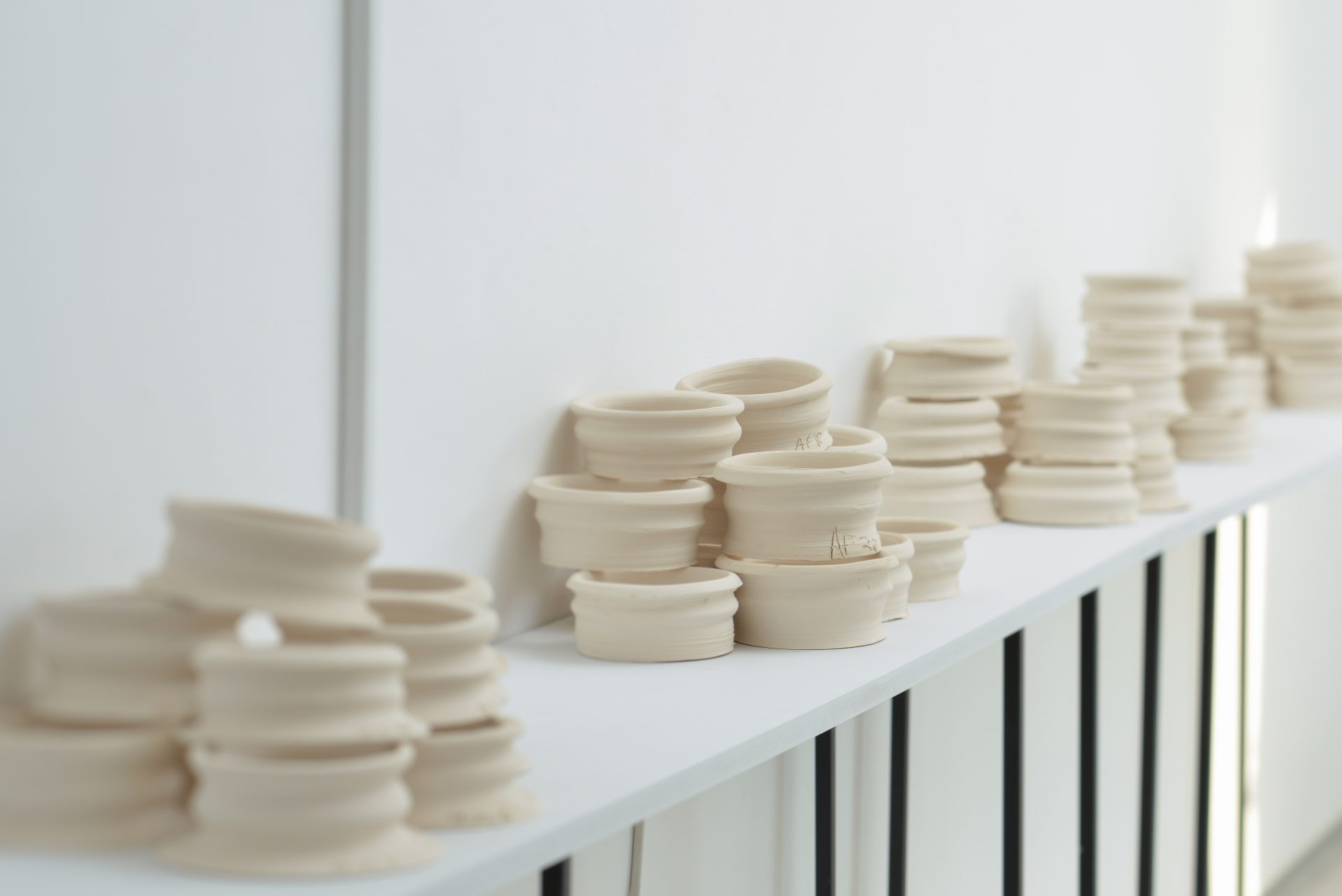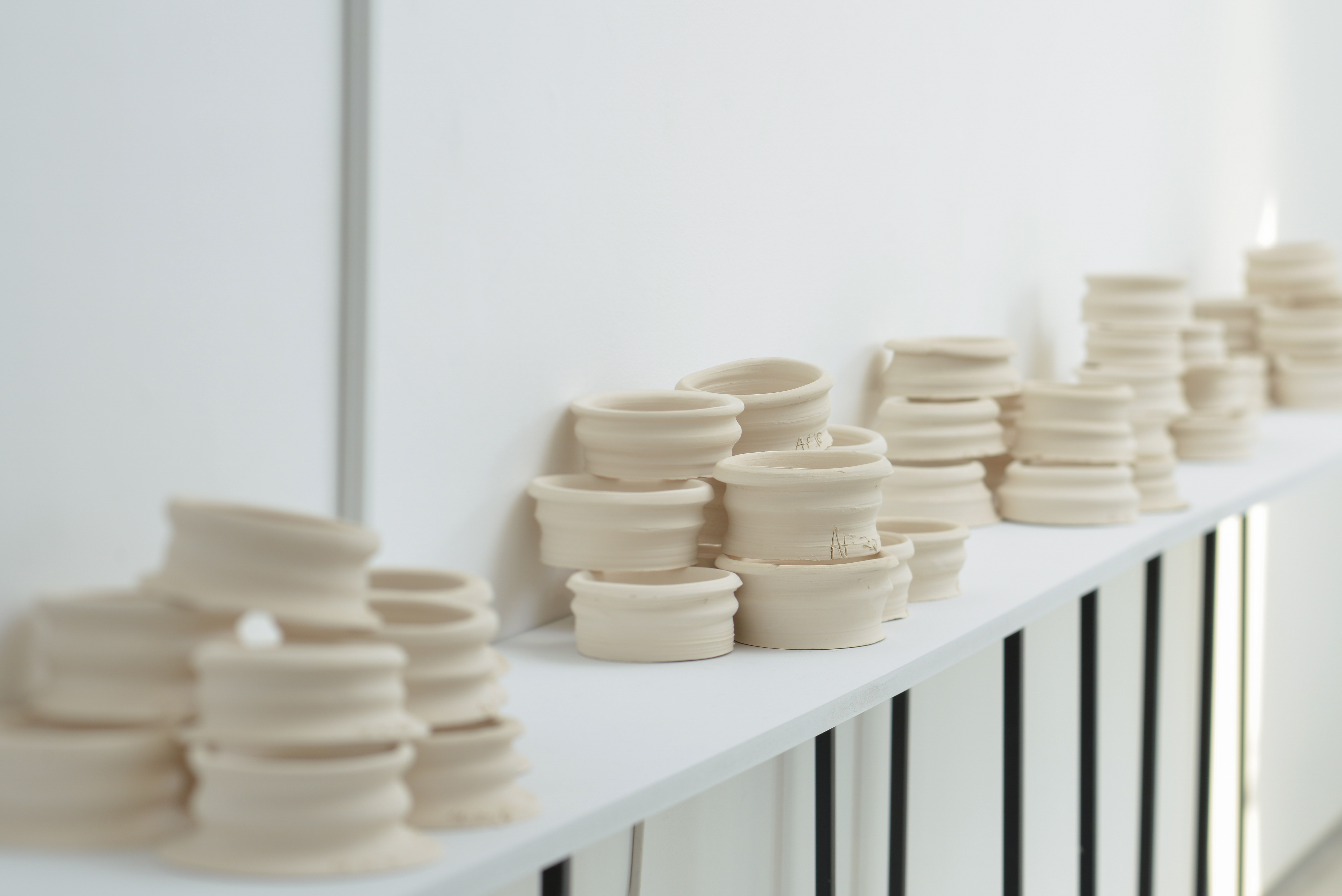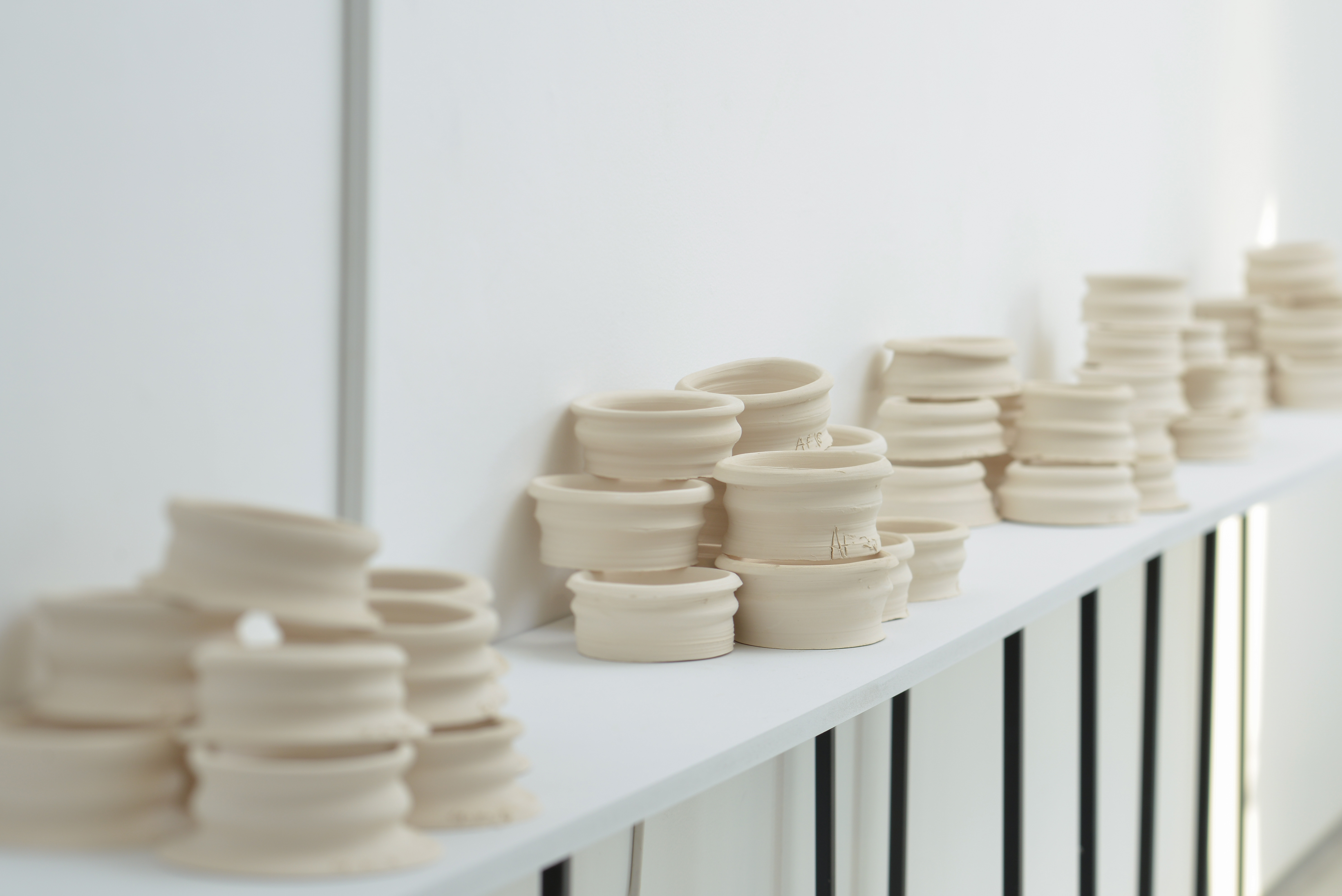The most common find in archaelogical digs is ceramics. Archaeologists sort clay pots according to type, form and size and ascribe them to types and cultures. However, it was not possible to analyze personal style and its influence on the range of vessels that we find in ancient ceramics. This research addresses this issue by combining experimental and computational archaeology.
In the experiment 5 students from the Department of Ceramic and Glass Design, Bezalel were requested to copy the upper part of a specific typical jar repeatedly for a week. These pieces were 3D scanned using Pottery3D software and the data from the scans enabled automatic sorting of the items into groups according to similarity of form. The categorising showed a significant correlation to the identity of the potter and could computationally differentiate where the potters themselves could not identify what they had made in the experiment. The analysis showed that the potters consistently made the necks of the pot in the same way. From this it can be deduced that this area is the motorical “signature” of the student which she repeats unconsciously.
Necks of ceramic jars made from white clay from the experiment
Participants: Grace Kim, Kacey Lederman, Tama Ginzburg, Eliya Levi Yunger, Adi Fisher
Research Partners: Leore Grossman, Naama Glober with the support of Ruth Amiran Foundation and the Charitable Trust Robert W. Wilson
Video: Grace Kim, Student of the Department of Ceramic and Glass Design, Bezalel. Photograph: Ortal Harosh



